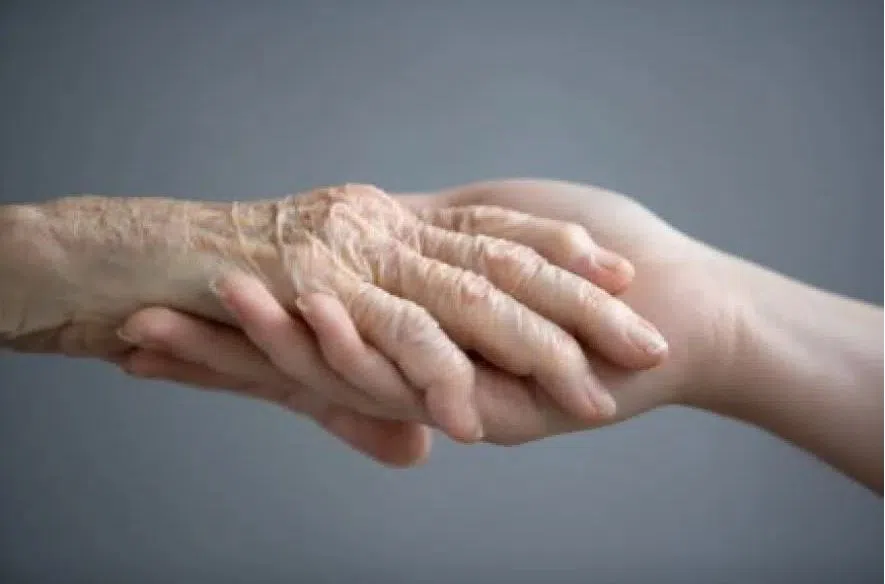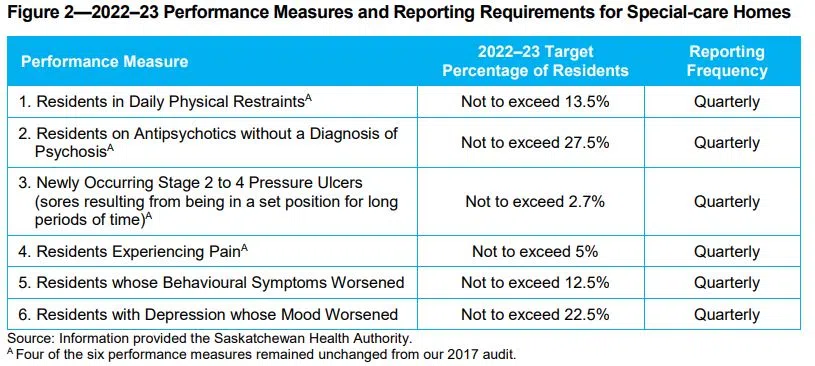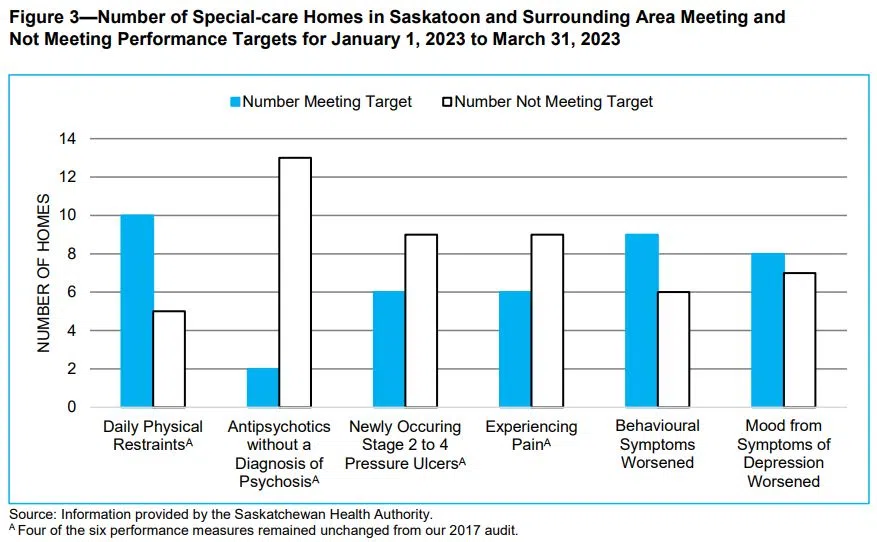A handful of Saskatoon-and-area special-care homes are not meeting regulations set out by the Ministry of Health.
The Saskatchewan’s provincial auditor, Tara Clemett, found that the homes were using anti-psychotic drugs on residents without a proper medical diagnosis.
The audit looked at 12 care homes in Saskatoon and one from each town of Langham, Dalmeny and Warman. It found that all but one were not meeting the six performance targets outlined by the Ministry of Health.
The ministry guidelines were updated in July of 2021. They outline the performance measures and the target percentage of residents it affects.
Chart outlining performance measures and reporting requirements. (Provincial Auditor Report – Volume 2, Chapter 25, Figure 2)
980 CJME is awaiting a response from the Ministry of Health as to how and why these target percentage numbers are in place.
The audit goes on to report that most care homes don’t meet those target numbers.
Chart outlining the number of special-care homes meeting and not meeting target performances. (Provincial Auditor Report – Volume 2, Chapter 25, Figure 3)
The most alarming of the findings is that 13 out of 15 care homes overuse anti-psychotic medication on residents without a proper diagnosis of psychosis.
Clemett wrote in the report, “(this) is often an indicator that special-care home staff chemically manage their homes’ residents.”
The care homes are privately operated and contracted by the Saskatchewan Health Authority (SHA).
In 2022-23, the contracts with the 15 home operators totalled $99.2 million.
- ‘It’s elder abuse:’ Two more private care homes close in Regina
- Gov’t seeking company to build long-term care home in Regina
According to the audit, the SHA made “little progress on addressing recommendations made in 2017.”
The audit makes further recommendations and said: “The Authority needs to continue working with special-care homes towards addressing homes’ non-compliance with performance measures related to quality of care provided to residents.”
Clemett wrote that by not quickly addressing these issues, patient quality of life can decline.
The 2017 audit outlined six recommendations, by November 2019, the SHA implemented only one of six recommendations.
Of the remaining five recommendations, the report said the SHA needs to:
- enter into contracts with special-care homes that set out accountability relationships;
- work with the Ministry of Health to confirm performance measures;
- clearly define service expectations;
- inspect special-care homes (no longer relevant to the SHA as the Ministry of Health is in charge of inspections); and
- take quick action when it finds non-compliance.
Overall, the 2023 audit found similar patterns to the ones in 2017 and 2019. Results actually worsened since 2019 for three measures (residents in daily restraints, use of anti-psychotics and pressure ulcers, also known as bedsores).
To read the audit, click here.
Government response
When asked for a comment from the SHA, 980 CJME was directed to statements made by Seniors Health Minister Tim McLeod.
He thanked the auditor for revealing this information and that the government is taking the findings very seriously.
“I would say that the auditor is making recommendations that we review with SHA. We take care of our seniors and the delivery of healthcare very seriously. It’s a top priority for our government,” said Tim McLeod. (Lisa Schick/980 CJME)
“I’ve spoken with my officials at SHA and they are actively implementing the recommendations arising from the auditor’s report,” McLeod said.
However, he couldn’t elaborate on what actions would be taken
“I can’t give you the specifics in terms of how the SHA is following through with those recommendations,” he said. “But I will certainly be following up with them to make sure they are actively implementing those recommendations in a way that satisfies the auditor’s report.”
When asked about the misuse of anti-psychotic drugs, McLeod said: “In terms of the medications that are being delivered at our long-term care facilities, those need to be monitored and delivered appropriately.”
He said the SHA and government are always evaluating protocols, policies and procedures in place in health care and caring for seniors.










